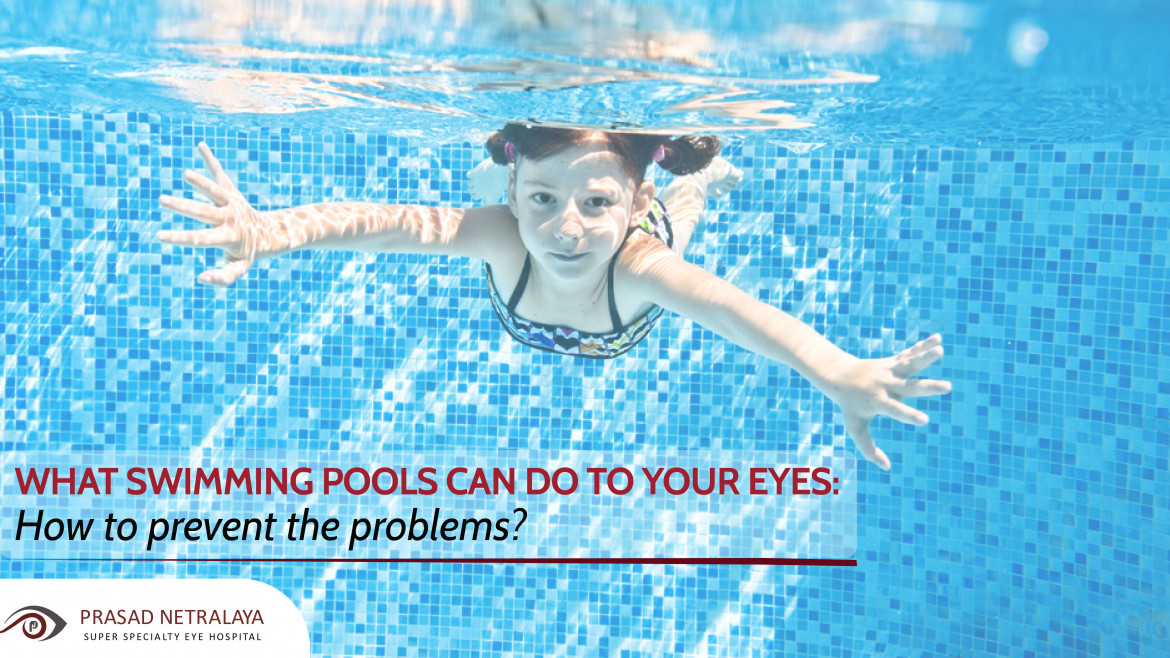Swimming is the perfect activity to exercise your muscles without putting too much strain on your joints. It is a great way to get a cardiovascular workout and also reduce stress. Though it is a fun and healthy activity to stay physically fit, it is not entirely risk-free.
It could cause skin allergies since pools use chlorine to disinfect the water. When you are exposed to chlorine in high amounts for long periods, it can irritate your eyes.
You may have many questions in your mind. Is swimming bad for your eyes?
Can swimming cause eye infections? Understand the working of chlorine and how you can take effective measures to maximize the health benefits you gain from swimming, without being a victim of swimmers eyes infection. Read on!
Table of Contents
Why Is Chlorine Used and How Does it Affect Your Eyes?
Chlorine is used to sterilize and cleanse pools. This process is called chlorination and is used to kill parasites, bacteria, and viruses. Chlorine is also used in small amounts to disinfect drinking water. This method prevents and protects you against several waterborne diseases. Keeping the chlorine levels up to 4 milligrams per litre is safe for those who aren’t overly sensitive to this compound.
Chlorine is added to the water to keep you and the water safe. But can chlorine affect your eyesight? It dilutes the tear film in your eye — making your eyes more vulnerable and exposed. The sting and the redness in your eyes while in chlorinated water are mainly due to this. It dehydrates your eyes which sometimes results in blurry or distorted vision. During this time, when your vulnerable eyes come in contact with bacteria or viruses that the chlorine failed to kill, infections develop. Although chlorine causes blurred vision, the infections themselves are not caused due to chlorine.
How to Keep Your Eyes Safe When Swimming
Some common eye problems caused by swimming in chlorinated water include:
- Conjunctivitis — also known as pink eye
- Blurred vision
- Dry eyes
- Red eyes
- Bacterial eye infection
Take necessary precautions and steps to keep your eyes from sustaining too much damage. A few ways you can do so is by:
Wear Watertight Goggles
This is the most effective way to keep your eyes safe from chlorine and any other bacteria. It is the perfect ‘prevention is better than cure’ method. But in case you don’t have goggles, there are also other preventive methods you can follow.
Enquire About the Chlorine Levels
Community pools and guesthouses are required to post about their inspection reports. Talk to the people in charge and make sure that the pH levels of the pool are around 7 – 8. The ideal level would be 7.4. Do not make exceptions even if it’s a family pool.
Remove Your Contact Lenses While You’re in the Water
Some contact lenses tend to shrink in water, so there is a high chance that you might lose your lenses. Besides that, the gap between the lens and your eye is a perfect breeding ground for microbes and other bacteria.
Wash and Hydrate Your Eyes
Flushing out your eyes with water after a swim is recommended. If you are a regular swimmer, carrying artificial tears to flush out and hydrate your eyes is important. This will also come in handy if you have naturally dry eyes.
Make sure you don’t stay in the water too long and take breaks at regular intervals while also following these tips and precautions. If you’d like to discuss other preventive measures for dry eyes or pink eyes call us at +91 9513596565 or book an appointment if you wish to visit in person. You can also book a teleconsultation.



